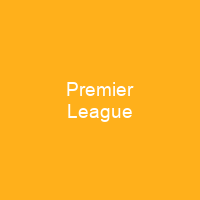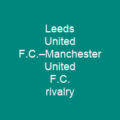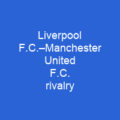The Premier League: A Footballing Phenomenon
Imagine a world where football transcends borders, where every match is watched by millions and every goal celebrated with fervor. That’s the reality of the Premier League, one of the most-watched sports leagues in the world. Contested by 20 clubs, this professional association football league operates on a system of promotion and relegation, making it a dynamic and ever-evolving competition.
Origins and Growth
The Premier League was founded as the FA Premier League on February 20, 1992. This breakaway from the English Football League (EFL) marked a significant shift in how football was managed and monetized. The league’s formation came at a time when English football was facing its lowest point, but it quickly reversed this trend, becoming a powerhouse of global sports.
Financial Powerhouse
The Premier League is not just about the game; it’s also a financial behemoth. With a £5 billion television rights deal and earning $7.2 billion in overseas TV rights, it’s no wonder why this league commands such attention. The league has produced seven title winners, with Manchester United leading the pack with 13 titles.
Champions and Contenders
The Premier League has seen a shift in dominance over the years. From Manchester United’s long reign to Leicester City’s unexpected victory in 2015-16, the league continues to surprise fans and critics alike. The ‘Big Six’ (Manchester United, Manchester City, Chelsea, Arsenal, Liverpool, Tottenham Hotspur) have dominated for much of its history, but recent seasons have seen new faces like Newcastle United and Brighton & Hove Albion challenge their supremacy.
Technology and Innovation
The use of video assistant referees (VAR) in the league has been a topic of debate. While it aims to improve decision-making on the pitch, its implementation has faced criticism from fans and pundits alike. The technology’s impact on game flow and consistency remains a subject of discussion.
European Success
The Premier League’s success extends beyond domestic competitions. With 48 continental trophies won, English clubs are third-most successful in European football. Manchester City’s sixth consecutive league title in the 2022-23 season further cements its status as a global powerhouse.
Challenges and Controversies
The Premier League faces criticism over governance issues, financial disparity between clubs, and the impact of player transfers. The ‘Big Six’ argue for greater financial power, while others advocate for maintaining a competitive league structure. Sponsorship deals have also played a significant role in the league’s success, with Nike as the official ball supplier since 2000-01.
Future Prospects
The future of the Premier League looks bright, but challenges remain. The government is planning to grant authority to stop clubs from selling stadiums to affiliated or third-party companies, addressing concerns over club ownership and control. As the league continues to evolve, it will undoubtedly face new opportunities and obstacles.
Conclusion
The Premier League stands as a testament to the power of football in uniting people across borders. From its humble beginnings to becoming the most-watched sports league in the world, this competition has transformed not just English football but global sports culture. As it continues to grow and adapt, one thing is certain: the Premier League will remain at the forefront of football’s evolution.

You want to know more about Premier League?
This page is based on the article Premier League published in Wikipedia (retrieved on March 8, 2025) and was automatically summarized using artificial intelligence.







